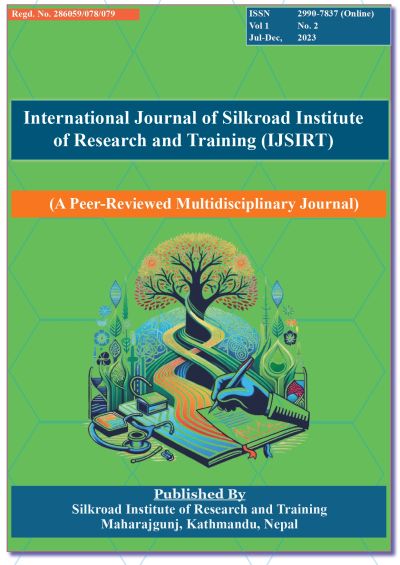Knowledge, Attitude and Practice Regarding Cardiopulmonary Resuscitation among Nurses in Selected Hospitals of Bharatpur, Nepal
DOI:
https://doi.org/10.3126/ijsirt.v1i2.61660Keywords:
Knowledge, attitude and practice, cardiopulmonary resuscitation, nursesAbstract
Background: Cardiac arrest is a significant public health problem projected to account for 15–20% of all deaths. It is also recorded by WHO to be an important cause of cardiovascular morbidity and mortality in both developed and developing countries. Cardiopulmonary resuscitation is a lifesaving medical procedure for victims of sudden cardiac arrest. The objective of the study is to assess the knowledge, attitude and practice regarding cardiopulmonary resuscitation among nurses in selected hospitals of Bharatpur, Nepal.
Methods: A cross-sectional analytical study design was employed. A convenience sampling method was used to select the study areas as well as for data collection in selected hospitals of Bharatpur. A self-administered questionnaire and Likert scale was used to obtain data. Data obtained were summarized as frequencies, percentages, mean, standard deviation and associations were then tested using Likelihood, Fisher exact and Pearson’s chi-square test, at 5% Significance.
Results: Total 216 nurses participated in the study, the result of the study indicated that majority of nurses in selected hospitals had poor knowledge (52.3%), with majority of positive attitude 52.3%. Out of 216 subjects, 27.8% had taken part in in-service education/ training while only 98(45.4%) nurses had performed CPR and has good practice 64.3%.
Conclusions: The study result shows that the nurses still had inadequate level of knowledge, attitude and practice. In these facilities need further training and periodic workshop on cardiopulmonary resuscitation to help nurses improve upon quality of care given to cardiac arrest patients.
Downloads
Downloads
Published
How to Cite
Issue
Section
License
Copyright (c) 2023 Babita Ghimire, Sujana Aryal, Hari Prasad Upadhyay

This work is licensed under a Creative Commons Attribution-ShareAlike 4.0 International License.
CC BY-SA: This license allows reusers to distribute, remix, adapt, and build upon the material in any medium or format, so long as attribution is given to the creator. The license allows for commercial use. If you remix, adapt, or build upon the material, you must license the modified material under identical terms.




